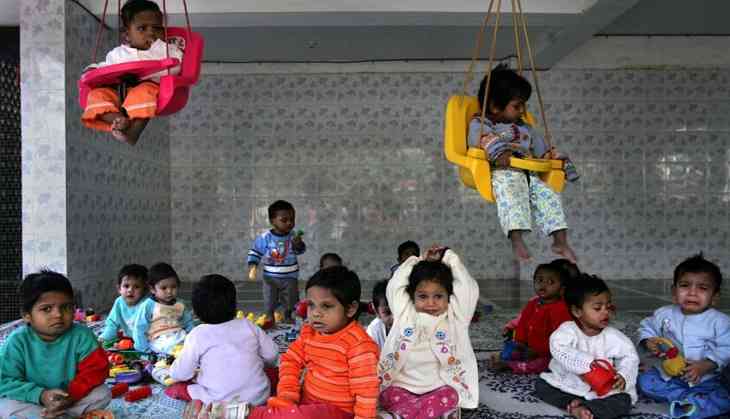Streamlining adoptions in India: Focus to be on Juvenile Justice Act

With the goal of providing a uniform and institutionalised adoption framework, the government is planning to disallow adoption under the Hindu Adoptions and Maintenance Act, 1956 (HAMA) and make the Juvenile Justice (Care and Protection of Children) Act, 2015 the primary law governing adoptions in India.
Adoptions in India are currently guided by HAMA, which is applicable to Hindus, Buddhists, Jains and Sikhs, the JJ Act, the Model JJ rules 2016 and Adoption Regulations 2017, which are applicable to all irrespective of religion.
Illegal adoptions
While the JJ Act spells out a detailed procedure for adoption entailing accountability, transparency and auditability of children entering into the adoption stream, adoption under the HAMA is quite simple - to legalise an adoption, one does not even need a court order.
Wary of the stringent rules under the JJ Act, adoption agencies as well as prospective adoptive parents (PAPS) prefer HAMA. The lineal provisions of adoptions under the act have resulted in touts misusing them and resort to illegal adoption and even trafficking of children.
Apprehensive of transparency, accountability, auditability and limitations in parading children before a battery of parents, as required by the JJ Act, private adoptions under the HAMA have been on the rise.
In fact, a large number of adoption agencies have refrained from getting registered under the JJ Act.
The Ministry of Women and Child Welfare (WCD)’s move to amend HAMA is aimed at preventing its misuse and eradicate the prospects of touts using them to for child trafficking.
As per the ministry, of the nearly 10,000 child-care institutions in India, more than half of them are unregistered and only a little over 2,300 are registered under the JJ Act.
Pointing to the prevalence of illegal adoption and even trafficking from child care institutions, there has been long pending demands for making the JJ Act as the governing law for adoptions and do away with adoption under the HAMA.
The ministry is in process of submitting its proposal for amending the HAMA before the union Cabinet for its approval.
Guidelines under JJ Act
Once the JJ Act becomes the sole guiding law for adoption, registration would be mandatory for all child-care institutions and those willing to act as adoption agencies will have to be registered as one under the JJ Act.
The JJ Act provides for very detailed guidelines for adoption as promulgated by Central Adoption Resource Authority (CARA). It is a statutory body of Ministry of WCD and functions as the nodal body for adoption of Indian children.
Under these guidelines, no adoption of an orphan, abandoned or surrendered child can take place in contravention of process laid down by CARA and without the engagement of intermediaries authorised therein for their respective roles.
Before the advent of the JJ Act in 2000, HAMA was the only law for adoption in the country. With personal laws of Muslims, Christians, Parsis and Jews not recognising complete adoption, they could only take a child under their guardianship as per the Guardians and Wards Act 1890.
Under the Guardians and Wards Act, a child is just a ward and not an adopted child. When the ward turns 21 years of age, he/she no longer remain wards and assume individual identities. The ward also does not have an automatic right of inheritance.
Legal experts as well as the CARA advisory board has long been pitching for amending the HAMA pointing to several of its drawbacks. Besides barring same sex adoption, the law also has no provisions for ascertaining suitability of the PAPs, sourcing of the child and post-adoption follow up.
Also inter-country adoptions cannot be done under HAMA as it is not supported by Hague Convention on Adoptions.
The timeline
The move to amend HAMA is one of the several steps taken by the WCD ministry to regularise adoption in the country. Earlier in January, it notified the CARA framed Adoption Regulations, 2017 to strengthen adoption programme in the country by streamlining the adoption process.
The Adoption Regulations, 2017 replaced the Adoption Guidelines, 2015. Transparency, early deinstitutionalisation of children, informed choice for the parents, ethical practices and strictly defined timelines in the adoption process are the salient aspects of the new Adoption Regulations which came into force 16 January.
The ministry is hopeful that the new move will help in arresting the decline in the number of adoptions.
As per the ministry records, in-country adoption for 2016-17 (April-March) was 3210 which is slightly higher than the previous year’s (2015-16) figures (3011). While the figure in 2011 stood at 5964, there was a steady decline since then with 2012-2013 recording 4694 adoptions which came down to 3924 in 2013-14.
For the year 2016-2017, inter-country adoptions stood at 578 while it 666 in the previous year. Maharashtra accounted for the highest number of adoptions both in-country (711) and inter-country (142).
First published: 24 October 2017, 19:21 IST
